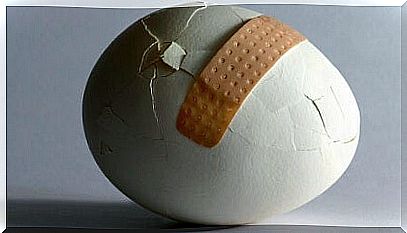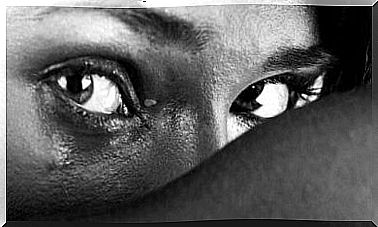Bubble Kids And The Dangers Of Overprotection

Nowadays there is a new and curious social etiquette called “ agenda mothers”. It may be that some of our readers feel identified, or it is possible that they know people with this type of behavior very well. They are mothers (sometimes also fathers) used to digging through their children’s schedules, whether they are six or sixteen.
When the children come home, these mothers review each of the tasks, duties and tests that the children have planned. It is obviously important to be aware of this type of subject, but it is also not necessary to monitor every data of every academic obligation of children. With this, what we achieve is that, far from developing adequate autonomy in them, we end up creating people who are absolutely dependent.
“But if I didn’t take it off my feet, he/she wouldn’t do anything” , they usually say. However, the child was also not given an opportunity to try to do things alone.
We have the “ schedule mothers” and the “helicopter fathers”, parents who “fly over” their children’s lives, supervising, watching every move. In essence, they prevent children from becoming mature, self- reliant adults, denying them opportunities, surrounding their personal spaces until they create an authentic bubble around them.
Child overprotection in modern times
Something is happening. As experts explain to us, children today have less freedom than previous generations. Kindergarten professionals claim that in kindergartens there are children who are a little clumsier, who have not yet finished developing part of their motor function or fine motor skills.
An example of this can be seen in those parents who insist on dragging their children in strollers, when they could already walk perfectly. However, they prefer to carry their children like this “because it’s more comfortable”. And what happens when they arrive at the kindergarten? We find children aged 6 and 8 who go from one name to another because they don’t get what they want, because they are unable to resist frustration or any denial.
Why does it happen? What’s Behind Overprotection? Basically, the fear parents have that something bad will happen to their children, the almost obsessive need to have every aspect of the child’s life under control, aspiring to offer them a perfect life, without trauma and mistakes.
Well, sometimes the inconceivable idea of being “the perfect father or mother” ends up in the opposite. We generate in our children a complex and traumatic hate relationship. Perfection in education does not exist.
It’s simply about being there when you need it. To serve as a guide, support, offer bonds of love and care where, day by day, we can encourage the emotional maturity of our children.

When the overprotection bubble bursts
Sooner or later, that day arrives. The child may be 12 or 20 years old, but the time will finally come when the protective bubble will burst; the person will go out to discover the world, and will be terrified of everything outside the bubble, of everything that surrounds and builds the “real world”, this world from which it has always been protected.
The person will feel insecure and anxious, being the object of looks from others. It is very possible that you are bullied at school or that you react to these threats by being very aware of your vulnerability. A curious fact that many experts show is that a large percentage of overprotected children are more likely to develop allergies.
This is due to your emotions and stress, which leads to a weaker immune system, where one or another illness is common.
And, in turn, these diseases are an even more justified reason to continue exercising overprotection, which creates a kind of karmic cycle that never ends. However, this does not mean that children are hopelessly doomed to be eternally immature and, consequently, to be unhappy.
If they have good self-esteem and know how to react in time, many of them will be able to break these bonds and walk safely, advancing and learning for themselves.
Today we live in a world where information is accessible to anyone. Our parents are, for a while, this protective bubble, but life goes beyond our comfort zone and we must dare to step out of it.
It is often said that teachers, psychologists and educators push children towards the door of maturation, but sometimes parents are on the other side, preventing this from happening.
There is no need to be afraid. Children do not break down and need to grow up with learning opportunities. This is where we must offer our trust to them, always guiding but not raising the barriers of overprotection.









